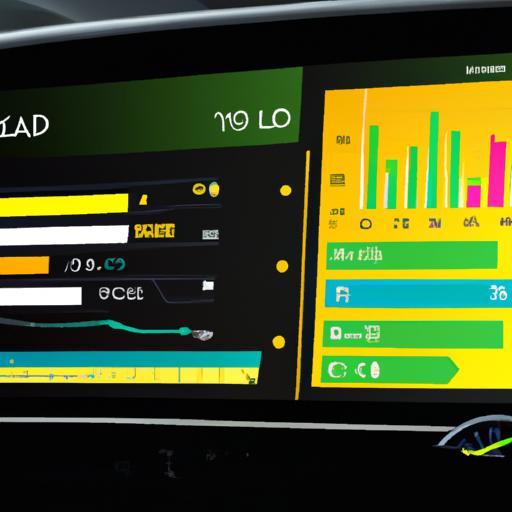Marketing for Automotive Industry: Driving Success Through Strategic Campaigns
Introduction
In the fast-paced world of the automotive industry, marketing plays a crucial role in driving success and staying ahead of the competition. But what exactly is marketing in this dynamic sector? Marketing in the automotive industry encompasses a range of strategies and tactics aimed at promoting vehicles, parts, services, and brands to potential customers. It involves understanding the unique needs and preferences of automotive consumers and crafting compelling campaigns to capture their attention.
The importance of marketing for automotive companies cannot be overstated. In a crowded marketplace where new models are constantly being released and consumer preferences are ever-evolving, effective marketing can make or break a brand. It helps companies differentiate themselves from competitors, build brand awareness, and ultimately drive sales. With the advent of digital technology and changing consumer behavior, the landscape of marketing in the automotive industry is constantly evolving. Let’s delve into the current marketing trends shaping the automotive sector and explore how companies can leverage these trends to drive success.
Understanding the Automotive Market
Analysis of the Target Audience
Understanding the target audience is paramount in crafting successful marketing campaigns in the automotive industry. By analyzing demographics, psychographics, and purchasing behaviors, companies can tailor their messaging to resonate with potential customers. Are you targeting young urban professionals looking for eco-friendly vehicles, or families seeking spacious and safe cars for their loved ones? Identifying your target audience allows you to create personalized marketing strategies that speak directly to their needs and desires.
Identifying the Competition
In a competitive landscape like the automotive industry, knowing your competitors inside and out is crucial for staying ahead. Conducting a competitive analysis helps you understand the strengths and weaknesses of other brands, identify gaps in the market, and differentiate your offerings. What unique selling points do your competitors emphasize? How can you position your brand to stand out in a crowded field? By closely studying the competition, you can fine-tune your marketing strategies to capitalize on opportunities and gain a competitive edge.
Researching Industry Trends and Insights
To thrive in the ever-evolving automotive market, staying abreast of industry trends and insights is essential. From advancements in electric vehicles to changing consumer preferences for SUVs over sedans, the automotive landscape is constantly shifting. By conducting thorough market research and monitoring industry trends, you can anticipate changes, identify emerging opportunities, and adapt your marketing strategies accordingly. Are autonomous vehicles the next big thing? How can you leverage data analytics to drive targeted marketing campaigns? Stay informed and agile to navigate the dynamic automotive market successfully.
Creating a Marketing Strategy
Setting Clear Marketing Goals
In the automotive industry, setting clear marketing goals is paramount to the success of any campaign. Whether the goal is to increase brand awareness, generate leads, or boost sales, having a well-defined objective provides direction and focus for the marketing strategy. By establishing specific, measurable, achievable, relevant, and time-bound (SMART) goals, automotive companies can track progress and adjust strategies as needed to ensure success.
Developing a Budget
Developing a budget is a crucial aspect of creating a marketing strategy in the automotive industry. Allocating resources effectively is essential to maximize the impact of marketing initiatives. By determining the budget early on and allocating funds to various marketing activities such as advertising, promotions, and events, companies can ensure that they are making the most of their resources and driving a strong return on investment.
Choosing the Right Marketing Channels
In today’s digital age, there is a multitude of marketing channels available to automotive companies, from traditional print and television advertising to digital platforms such as social media, search engine marketing, and email campaigns. Choosing the right mix of marketing channels that align with the target audience and marketing goals is key to reaching and engaging potential customers effectively. By selecting the most relevant and impactful channels, automotive companies can optimize their marketing strategy and maximize results.
Implementing Marketing Tactics
Digital Marketing Strategies
In today’s digital age, digital marketing has become a cornerstone of automotive marketing strategies. From search engine optimization (SEO) to pay-per-click advertising (PPC), automotive companies leverage various digital tactics to increase brand visibility and engage with potential customers online. With the majority of consumers turning to the internet to research vehicles and make purchasing decisions, a strong digital presence is essential for automotive companies looking to stay competitive in the market.
Traditional Marketing Tactics
While digital marketing continues to gain prominence, traditional marketing tactics still hold value in the automotive industry. From television and radio ads to print media and direct mail campaigns, traditional marketing tactics can help reach a broader audience and reinforce brand messaging. By integrating traditional marketing strategies with digital initiatives, automotive companies can create a comprehensive marketing strategy that effectively targets both online and offline consumers.
Social Media Marketing for Automotive Industry
Social media has revolutionized the way automotive companies connect with customers and build brand loyalty. Platforms like Facebook, Instagram, and Twitter provide a direct channel for companies to engage with consumers, showcase new products, and gather feedback. By creating compelling content, running targeted advertising campaigns, and fostering community engagement, automotive companies can leverage social media to drive brand awareness, generate leads, and ultimately boost sales.
Measuring Success
Tracking Key Performance Indicators
In the fast-paced world of automotive marketing, tracking key performance indicators (KPIs) is essential to evaluating the success of your campaigns. KPIs provide valuable insights into the effectiveness of your marketing efforts, helping you understand what is working well and what areas need improvement. Common KPIs in the automotive industry include website traffic, lead generation, conversion rates, and customer engagement metrics. By monitoring these KPIs closely, you can make data-driven decisions and optimize your marketing strategies for maximum impact.
Analyzing the Effectiveness of Marketing Campaigns
Analyzing the effectiveness of your marketing campaigns is crucial for identifying strengths and weaknesses in your strategies. By examining key metrics such as click-through rates, conversion rates, and return on investment, you can gain valuable insights into the performance of your campaigns. This analysis can help you identify which tactics are driving results and which may need to be adjusted or replaced. By continuously evaluating the effectiveness of your marketing campaigns, you can ensure that your efforts are aligned with your business goals and driving tangible results.
Making Data-Driven Decisions
In today’s data-driven marketing landscape, making informed decisions based on data is key to success. By leveraging data analytics tools and technologies, automotive companies can gain valuable insights into consumer behavior, market trends, and the performance of their marketing campaigns. By using this data to inform decision-making, companies can optimize their strategies, target their efforts more effectively, and drive better results. By making data-driven decisions, automotive companies can stay agile, adapt to changing market conditions, and drive success in the competitive automotive industry.
Conclusion
In conclusion, marketing for the automotive industry is a dynamic and essential component for companies looking to thrive in a competitive market. By understanding the unique needs of consumers, setting clear marketing goals, and implementing effective strategies, automotive companies can drive success and stay ahead of the curve. With the ever-evolving landscape of digital marketing and consumer behavior, staying abreast of current trends and measuring success through data-driven decisions is key to achieving marketing excellence in the automotive sector.
As we look towards the future, it is clear that marketing will continue to play a pivotal role in shaping the success of automotive companies. By staying innovative, adaptable, and customer-centric, companies can forge strong connections with their target audience and drive growth in an ever-changing industry. With the right marketing strategies in place, automotive companies can navigate challenges, seize opportunities, and drive success in the dynamic and exciting world of the automotive industry.






